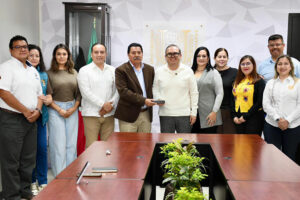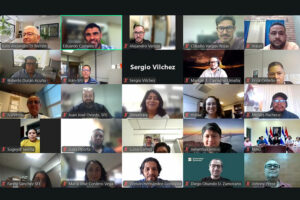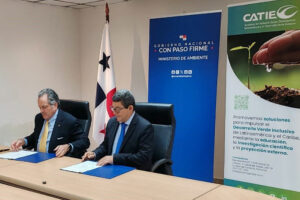CATIE promotes health and ancestral knowledge at fair held in Cabécar Indigenous Territory
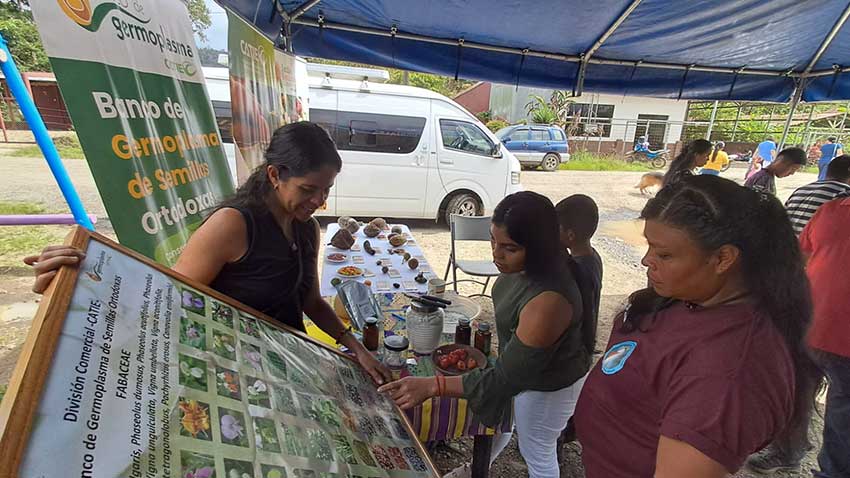
- During the fair, CATIE shared knowledge about medicinal and nutritious plants from its Botanical Garden and distributed heirloom seeds from its Germplasm Bank.
On May 5, CATIE (Tropical Agricultural Research and Higher Education Center) participated in the Health Fair “Yo me amo y me cuido – Yis jék shkál kika s’jék pasuá” (I love and take care of myself), organized by the Cantonal Council for Interinstitutional Coordination and the Turrialba Health Area, in the Cabécar territory of Chirripó.
The activity, held in the community of Grano de Oro, brought together various institutions under a comprehensive health approach, recognizing the connection between the physical, emotional, environmental, and spiritual well-being of communities.
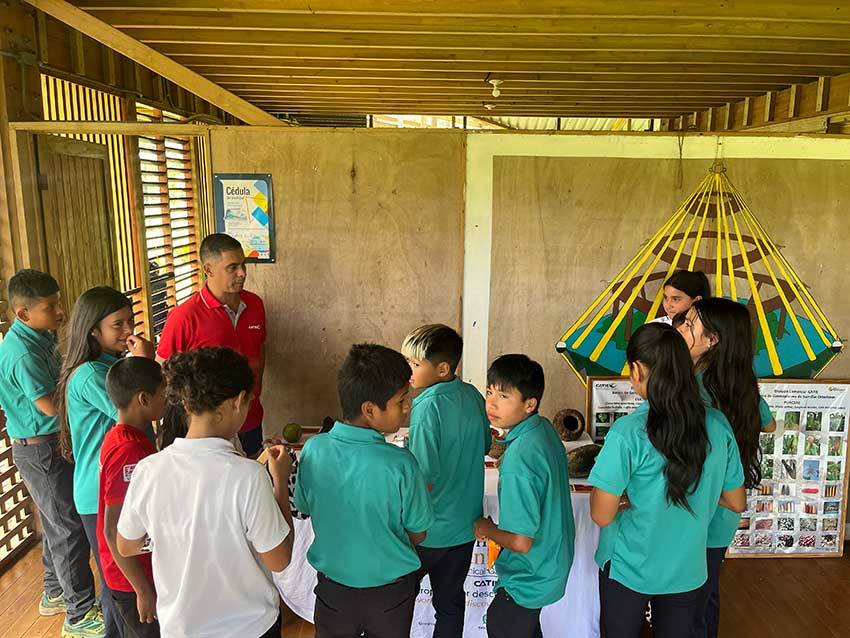
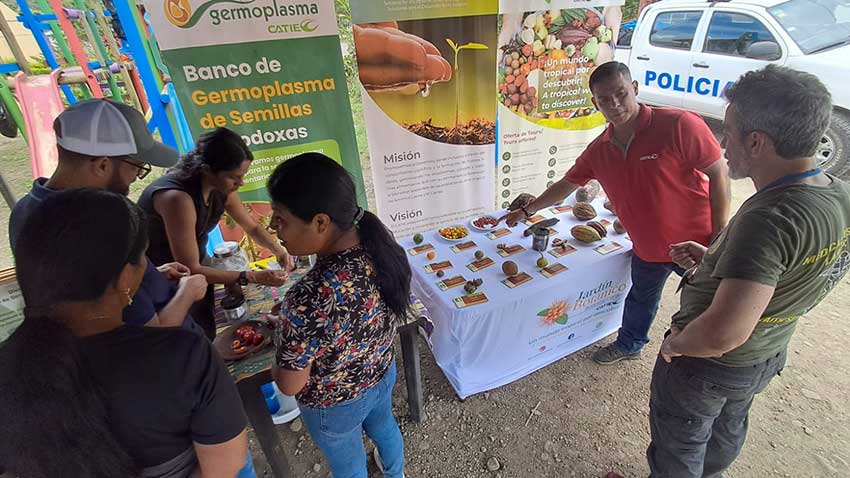
During the fair, CATIE’s Botanical Garden shared with attendees the cultural, medicinal, and nutritional value of various plant species native to Mesoamerica, many of which are preserved in its living collections.
Edgar Alvarado, specialist at the Botanical Garden, described the experience as highly enriching due to the opportunity to engage with the indigenous population. “We were able to share experiences by showing them some of the materials and species we have at the CATIE Botanical Garden, which we know are of great importance for food sustainability, preservation, and conservation,” he said.
The importance of recognizing and protecting traditional knowledge that has guided the use of these plants for centuries by Indigenous peoples and rural communities was highlighted.
Also participating was CATIE’s Genetic Resources Unit, which manages the Orthodox Seed Germplasm Bank, a collection that conserves over 6,000 accessions from 14 botanical families.
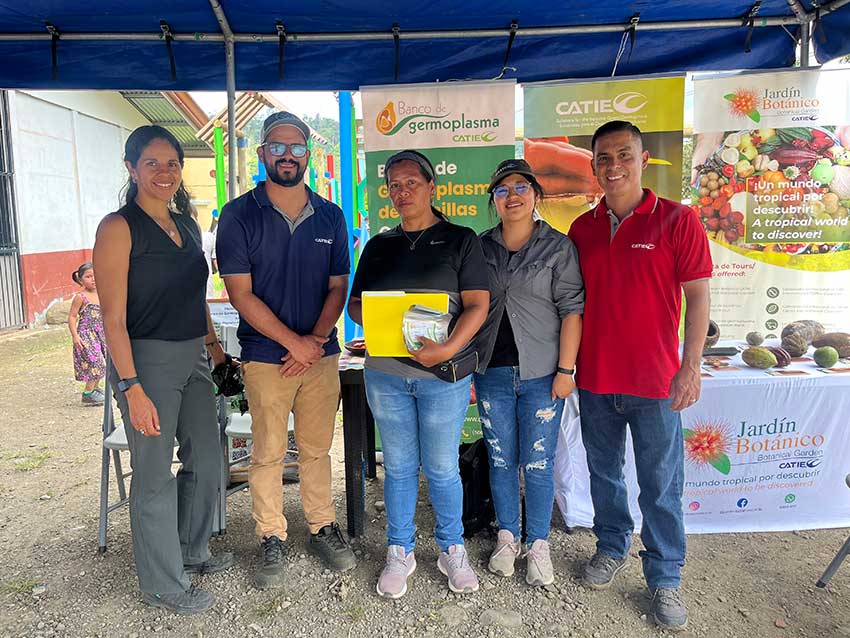
The unit presented seed processing and conservation techniques and distributed local varieties of corn, beans, chili peppers, tomatoes, and squash. This effort seeks to promote the use of traditional varieties at risk of disappearing and to contribute to more resilient food systems.
Daniel Fernández, from the Orthodox Seed Germplasm Bank, emphasized the significance of participating in these spaces of coexistence and knowledge exchange with Indigenous territories. “For them, seeds are a cultural, spiritual, and nutritional cornerstone of their traditions and ways of life. Moreover, these spaces enable the distribution of germplasm that supports the diversification of their family farming systems,” he said.
Karina Poveda Coto, coordinator of CATIE’s Rural Development and Indigenous Communities Unit, reaffirmed the unit’s commitment to serving as a bridge between traditional knowledge and technical-scientific expertise. “We aim for every action we take to respond to the real priorities of rural communities and Indigenous peoples, respecting their worldviews and fostering a dialogue of knowledge that builds shared solutions,” she stated.
Through its participation, CATIE reaffirms its commitment to promoting food security, conserving agrobiodiversity, and respecting the ancestral knowledge of the Cabécar people, as a fundamental part of health, culture, and the relationship with the Earth.
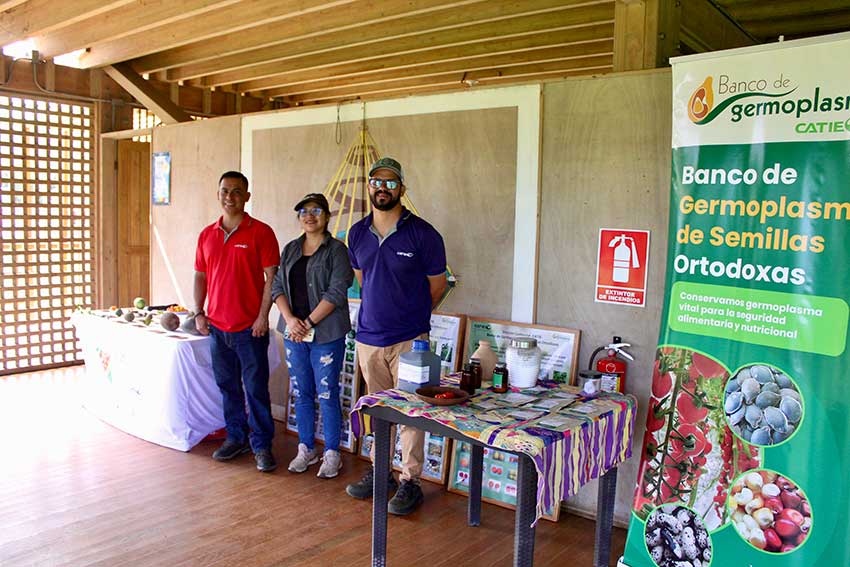
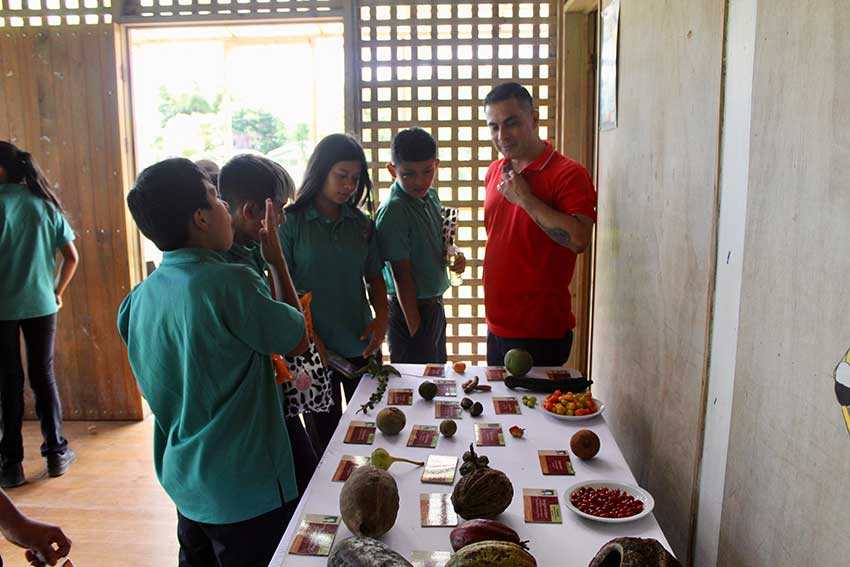
Redacción e información:
Karina Poveda Coto
Rural Women, Youth and Indigenous Communities Unit
karina.poveda@catie.ac.cr

